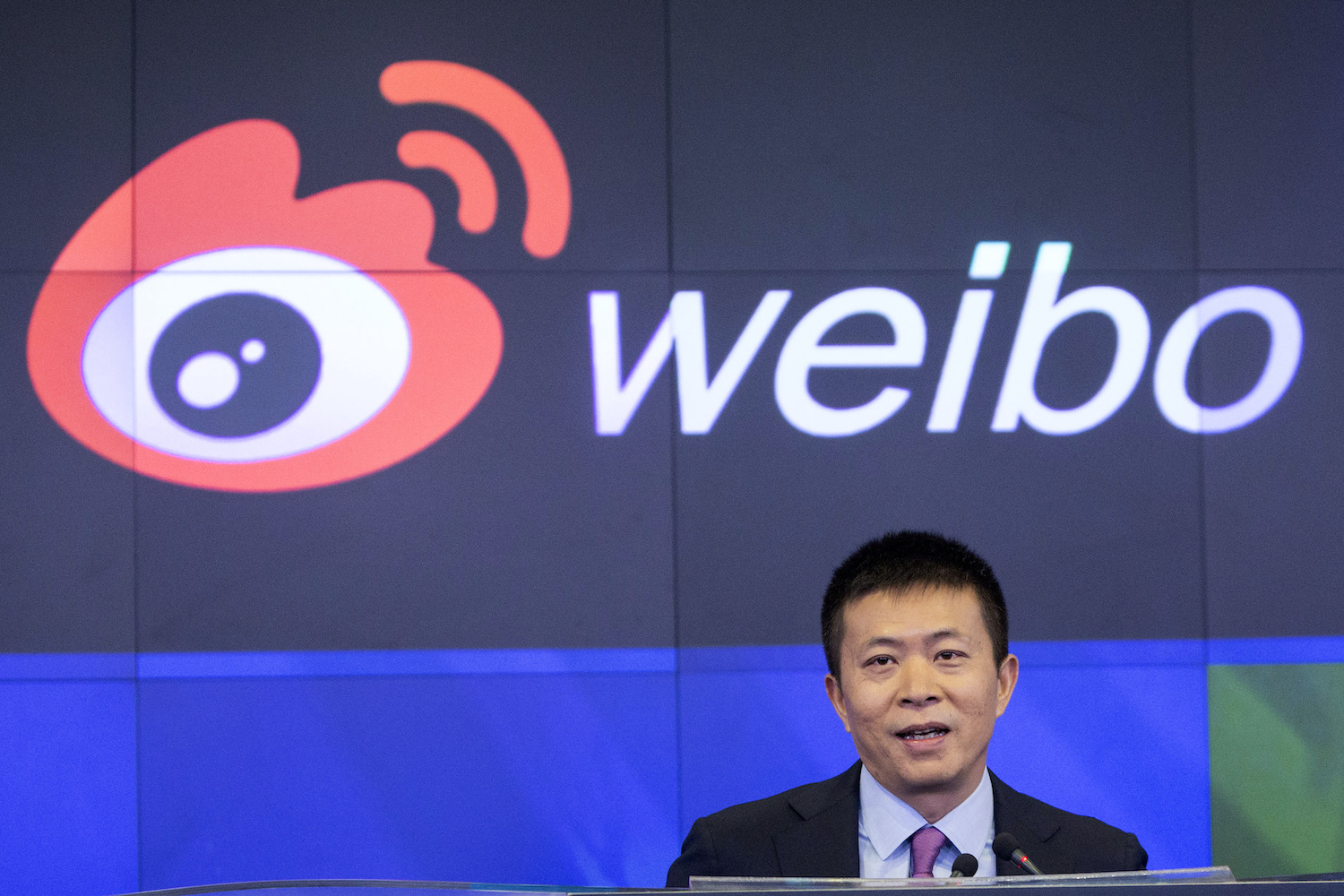• Mao Taotao, PR chief at Weibo, is suspected of bribery
• Tech companies targeted by regulatory crackdown in recent months
Chinese authorities have arrested a top public relations executive at Chinese social media giant Weibo Corp, local Chinese media reported widely on Tuesday.
Mao Taotao, director of public relations at Weibo, is suspected of bribery and alleged to have “seriously harmed the interests of the company”, according to an internal memo sent to staff and republished in local media.
A company source confirmed the accuracy of the memo.
“In accordance with company policy and the law, we have decided to fire Mao as punishment, and will not re-hire him,” the memo said, adding that Mao had been arrested.
The microblogging site, which is like Twitter, was launched by Sina Corporation in 2009 and has become one of the biggest social media platforms in China. It is partly owned by Alibaba Group Holding.
Mao joined Weibo in 2010 and quickly rose through the ranks of the marketing and PR department, the memo states.
“As a longtime employee of the company and head of an important department, he failed to act as role model and fell to temptation, which fills us with pain and regret.”
Weibo did not respond to a request for comment, and Mao could not be immediately reached.
News of the arrest comes at a time when Chinese tech companies have been facing regulatory heat over new anti-monopoly rules and data security and there has also been pressure on the property, gaming and private education sectors.
Celebrity power-list dropped
Weibo said on Friday it would take down an online list that ranks celebrities by popularity after state media said social media platforms ought to rein in the promotion of celebrity culture to protect children.
The announcement came after the state-owned People’s Daily published an editorial criticising platforms that prioritise traffic and create celebrities out of “unworthy” individuals, who can draw attention and money from fans. It did not name any companies.
Weibo said its decision to take down the “star power list”, which ranked celebrities based on the popularity of their social posts and number of followers, was partly due to the “irrational support” some fans were showing for celebrities.
“The list cannot comprehensively and objectively reflect the social influence of stars” and discourages healthy interaction between stars and fans, the company said in the statement.
Meanwhile, tech companies have doubled down on corruption investigations in recent years, amid an anti-graft campaign by President Xi Jinping and as their valuations and profiles have soared following a tech boom.
Earlier this year, a former vice-president of Kuaishou was arrested for alleged corruption, while Tencent Holdings said one of its company executives was being investigated by authorities over allegations of “personal corruption”.
China’s technology sector also been been embroiled in other controversies this week.
Alibaba Group faced a backlash for delaying action relating to an employee’s allegations of sexual assault against her manager and a client. There is no indication that the incidents are linked.
Weibo, which is listed on Nasdaq, had a strong 2021 first quarter. Net revenues were close to $459 million, a 42% year-over-year increase.
• Reuters and Jim Pollard
























